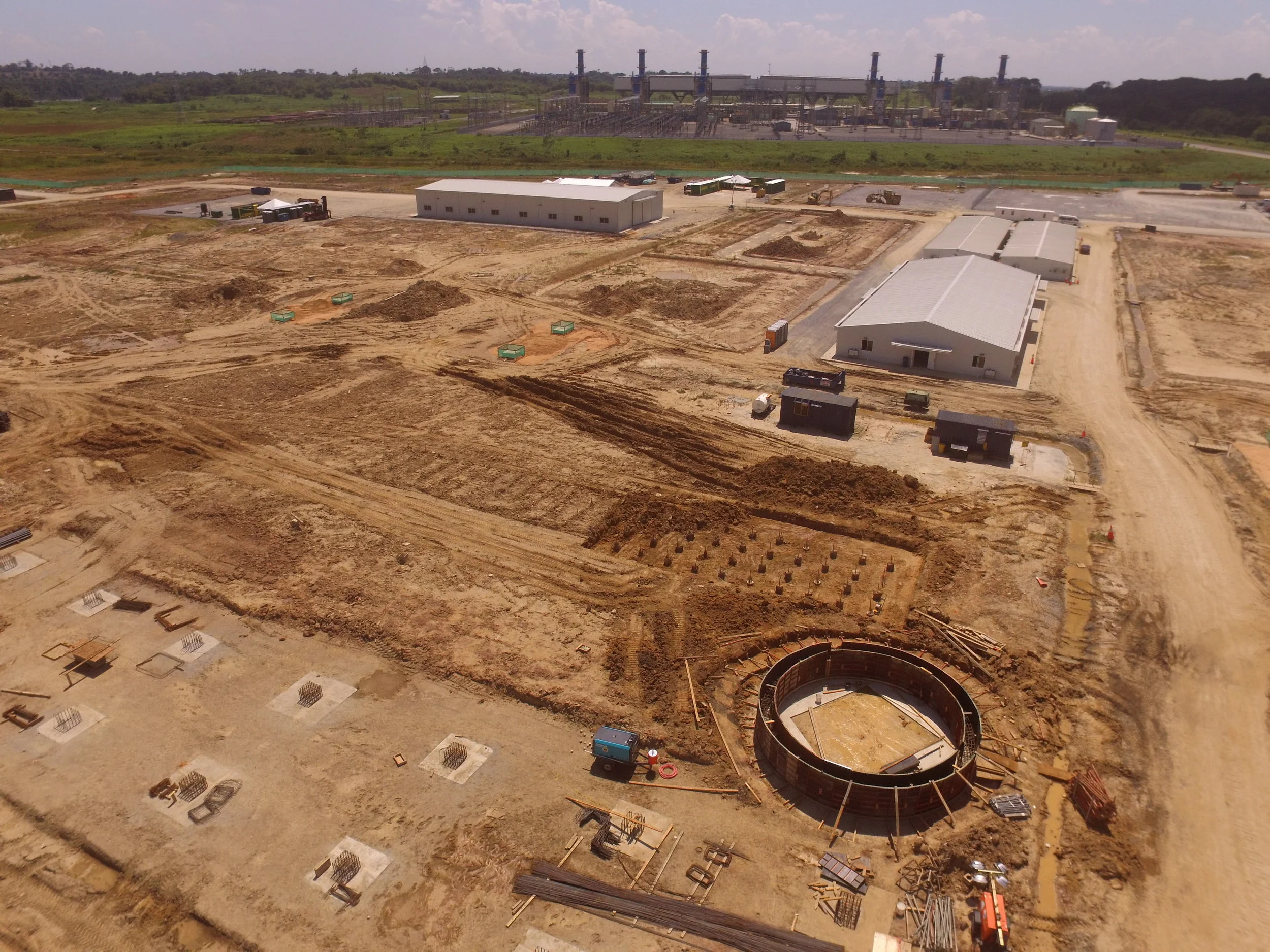Construction of the long-delayed Caribbean Gas Chemicals Limited (CGCL) petrochemical facility is underway at the Union Industrial Estate in La Brea, Trinidad. Construction of temporary site facilities for the CGCL plant, which will produce 1,000,000 metric tonnes per year (MTPY) of methanol and 20,000 MTPY of Dimethyl Ether (DME), began in March 2016, but activity on-site only started to ramp up after the final outstanding agreements were ratified and signed by all the stakeholders involved, on August 8th 2016. CGCL is owned by the Mitsubishi Consortium of Japan, the Massy Group and the state-owned National Gas Company of Trinidad and Tobago (NGC). The project is being financed by the Japan Bank for International Cooperation (JBIC).
This will be the eighth methanol plant in Trinidad and Tobago. However, it is the first petrochemical facility in La Brea and the first to go downstream of methanol into DME, which is an environmentally friendly alternative to diesel and liquefied petroleum gas (LPG).
The construction of the permanent facilities and structures of the CGCL plant commenced in earnest with piling activity in August 2016, and construction is expected to be completed in the fourth quarter of 2018. It is estimated that employment during construction will peak at approximately 2,000 individuals.
Construction of the CGCL facility is being undertaken by Mitsubishi Heavy Industries (MHI) under an Engineering, Procurement and Construction (EPC) contract. MHI are hiring numerous sub-contractors to undertake works such as piling, excavation, foundations, road paving, tank construction, administrative buildings, transport of plant modules, piping, mechanical, civil and electrical installation.
In addition to the work on the CGCL site in Union Industrial Estate, construction activity is also due to take place at the vessel berthing area, located at the neighbouring La Brea Industrial Development Company Limited (LABIDCO) Estate. Piling activity for the CGCL berths will commence in January 2017.
CGCL aims to maximise fenceline content during construction and has been engaging with groups and individuals from surrounding villages, including Rousillac, La Brea, Sobo, Vessigny, Union and Vance River. CGCL and MHI have been working hard to engage both fenceline individuals, and community contractors and suppliers in the plant construction activities. All the major subcontractors are expected to engage fenceline individuals as their core workforce, and the Ministry of Labour and Small Enterprise Development has developed a registry of individuals to assist in this process.
MHI has also been actively finding opportunities for small and micro contractors from the surrounding community, and has been directly targeting these small contractors for Category 1 packages (up to a maximum value of US$300,000). The objective of using fenceline or community contractors throughout the construction project is to help develop their capabilities, while at the same time providing employment opportunities to competent and qualified fenceline individuals. So far, MHI has awarded 13 Category 1 contracts to fenceline contractors and suppliers.
Given the paramount importance of safe construction activities, CGCL has mandated that all members of the contract workforce entering the facility must have a Point Lisas Energy Association (PLEA) card, indicating that they have basic knowledge of health and safety. Working with the Energy Chamber of Trinidad and Tobago, CGCL has provided support to 961 fenceline individuals to undertake PLEA training and receive a PLEA card.

